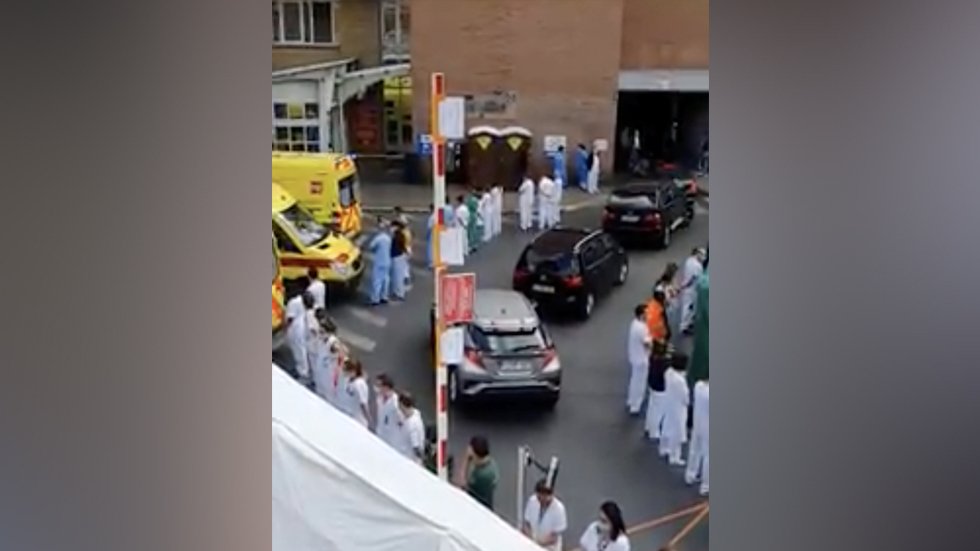Belgian nurses and frontline medical staff had been striking for a year, before they were called up to fight the Covid-19 pandemic. After months of ignored demands, they seized their chance when the prime minister came to visit.
By now the video of the viral protest has been seen the world over; the heroes of the coronavirus turning their backs on Belgium’s PM Sophie Wilmes upon her arrival at the Saint-Pierre hospital in Brussels. RT sat down with one nurse at the hospital, Nicolas Houyoux, to understand what exactly motivated the stirring protest after a year of strikes at the hospital over poor working conditions.
RT sat down with one nurse at the hospital, Nicolas Houyoux, to understand what exactly motivated the stirring protest after a year of strikes at the hospital over poor working conditions.
“The politicians said they heard and they were going to do things, and there was a budget set aside for us, but never used,” Hoyoux tells RT, detailing staffing shortages, increased workload and budget cuts as primary drivers behind the strike action.
While their grievances predated the coronavirus crisis, Hoyoux says staff adopted the “shut up and do your job” attitude when the pandemic struck. However, when word spread of Wilmes’ visit, they knew they had an opportunity to be heard.
“The whole healthcare system should be better financed so we can work better, especially in the public sector, so everyone can get the same level of treatment,” Hoyoux says, decrying the ‘economical’ approach to healthcare where hospitals are incentivized to order the most expensive treatments and carry out lots of examinations whether they are required or not, all in the interests of getting more funding.

While Hoyoux acknowledges that Saint-Pierre is one of the main specialist hospitals in the country, and therefore had all the equipment needed to fight the coronavirus when it hit, other facilities around the country were not so fortunate.
This he puts down to government inefficiency in handling the crisis, especially at the ministry of health where he claims nine ministers were responsible for handling the pandemic response and yet still unsuitable protective equipment was ordered, while some masks never arrived at all.
So egregious was the mismanagement, Hoyoux says, that the ministry of defense was brought in to manage future PPE orders and distribution.
Also on rt.com ‘Guard of dishonor’: VIDEO shows nurses & doctors giving ICY welcome to Belgian PM over govt’s Covid-19 responseHoyoux acknowledges that some financial stimulus was offered to nurses for working on the frontline and risking their lives, but says that's not what the nurses are seeking.
Instead of a temporary monetary incentive that will evaporate once the crisis dissipates, nurses want lasting better conditions and better overall pay, especially given that nursing studies have gone from three to four year university courses, before specialization.
When asked about Belgium's handling of the crisis, Hoyoux says that communication has, for the most part, been good, but there are issues with Belgium’s reported mortality rate.
“I think Belgium has been maybe too honest in the numbers that they were giving. People in old folks homes were all considered positive, even though they were not tested,” Hoyoux says, adding that, in his estimation at least, almost half of the country's alleged Covid-19 deaths were in elderly care homes, meaning the death toll has been artificially inflated.
“We wanted to protest but sort of a soft protest; no words, nothing bad, just explaining what and how we are feeling. So, yeah, there will be other strikes which will be in the more classical way where people gather in the streets... at least if nothing changes,” Hoyoux concludes.
Belgium, a country of roughly 11.5 million people, has a reported 55,791 confirmed cases of coronavirus infection and a death toll of 9,108.
Like this story? Share it with a friend!

